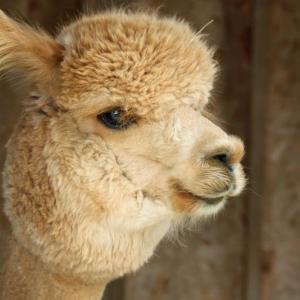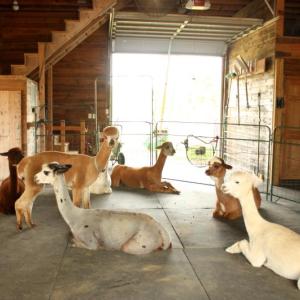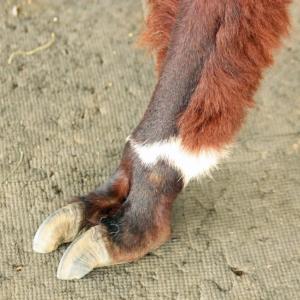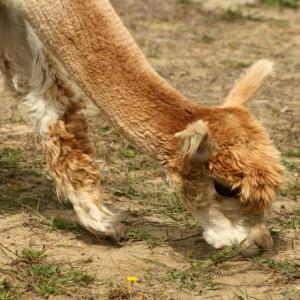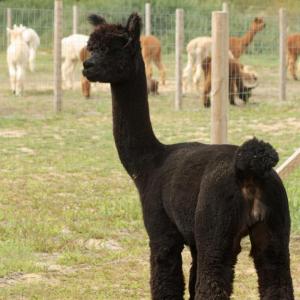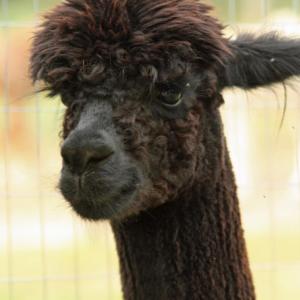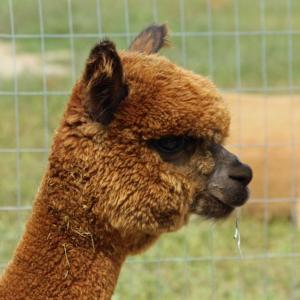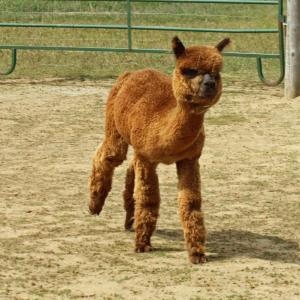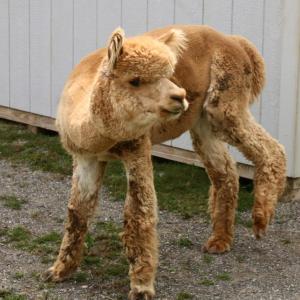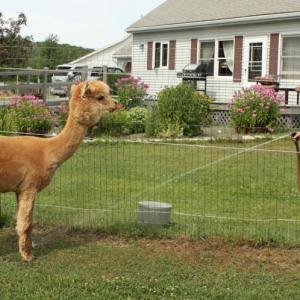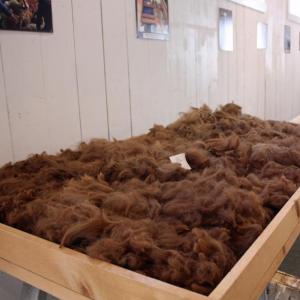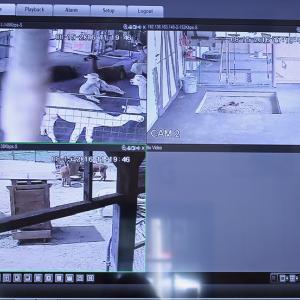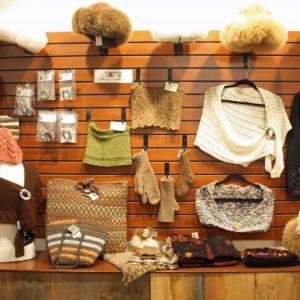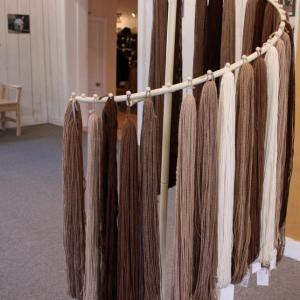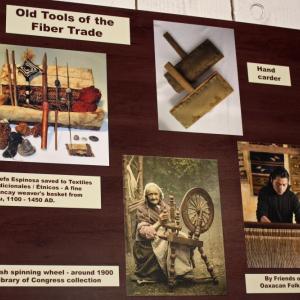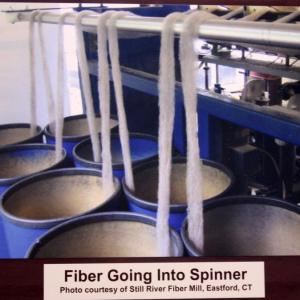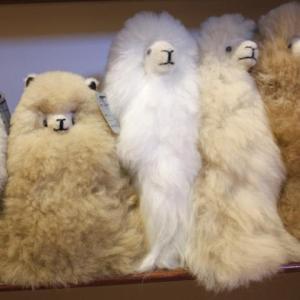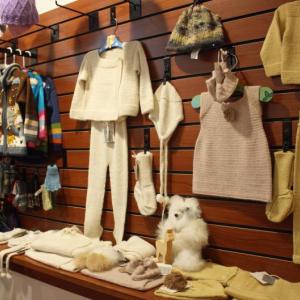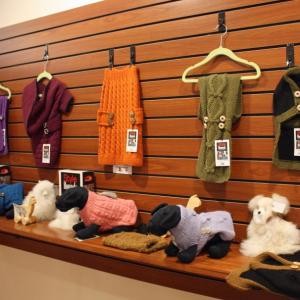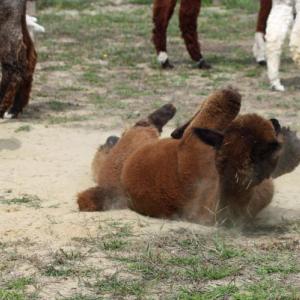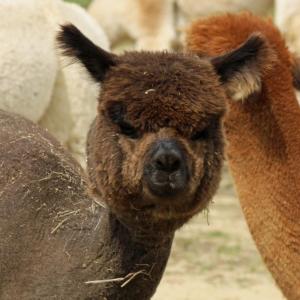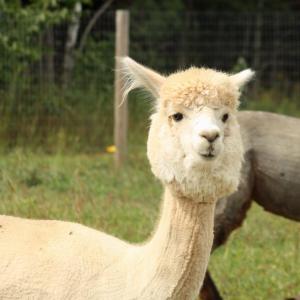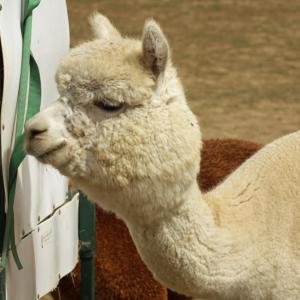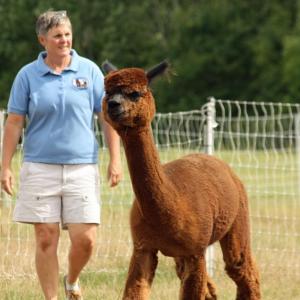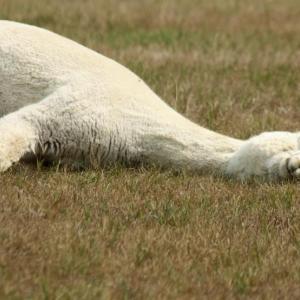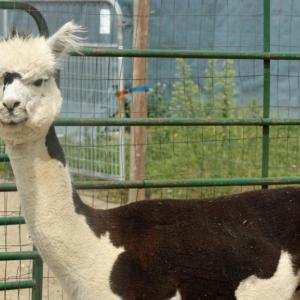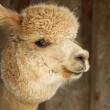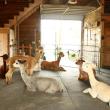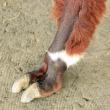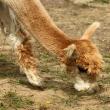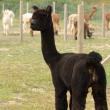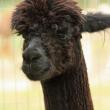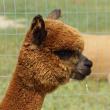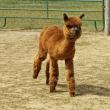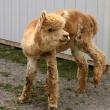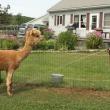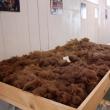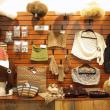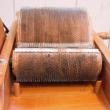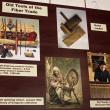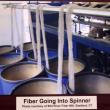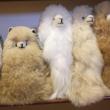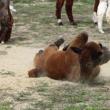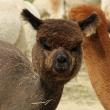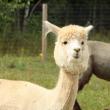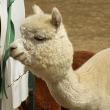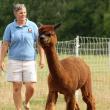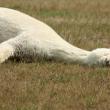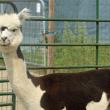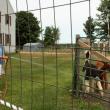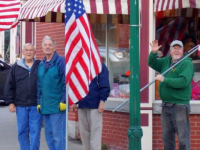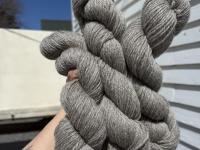Warming your heart and your hands, with alpaca fiber
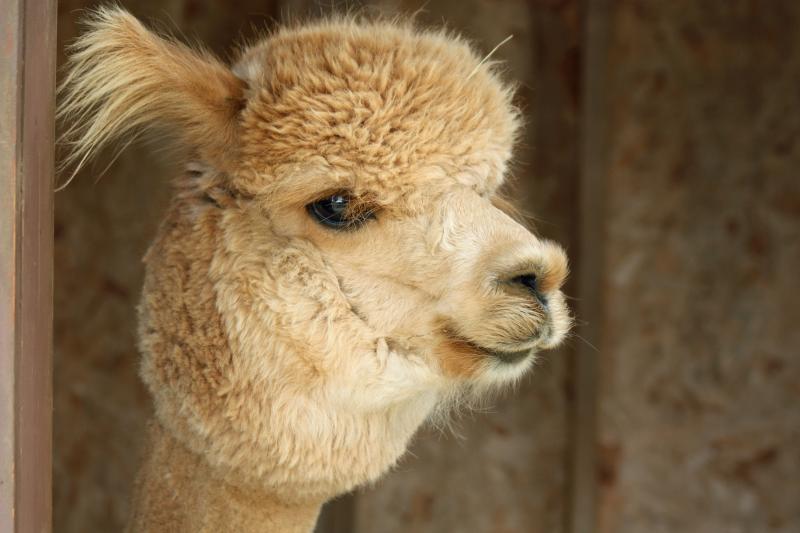 Northern Solstice’s star and most lucrative breeding alpaca is Space Cowboy. He was born in July of 2007 and in 2008 and 2009 won numerous awards. (Photo by Holly S. Edwards)
Northern Solstice’s star and most lucrative breeding alpaca is Space Cowboy. He was born in July of 2007 and in 2008 and 2009 won numerous awards. (Photo by Holly S. Edwards)
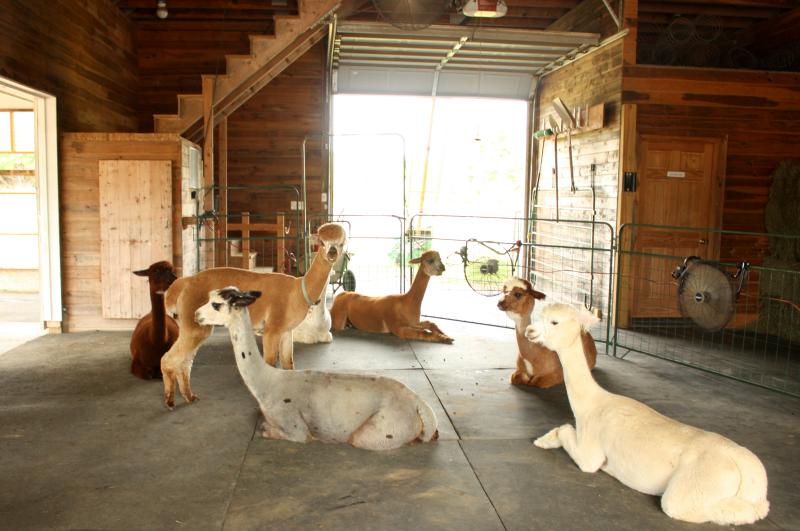 When the temperatures hit 70 F, the fans automatically kick on inside the barn and the girls like to hang out there and ruminate their food. (Photo by Holly S. Edwards)
When the temperatures hit 70 F, the fans automatically kick on inside the barn and the girls like to hang out there and ruminate their food. (Photo by Holly S. Edwards)
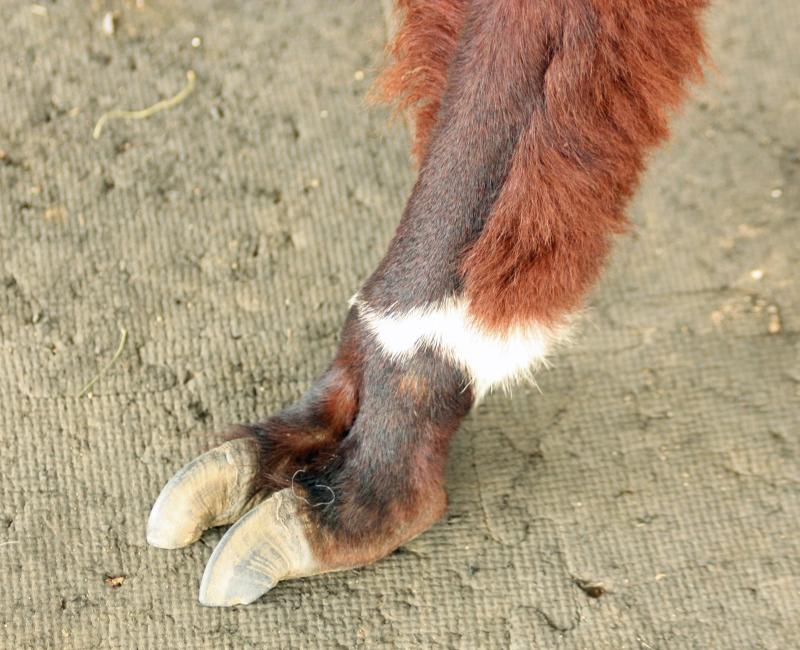 Alpacas don’t have hoofs or claws, they have padded feet and toes. While it is in not in their nature to be defensive, they also are not known to kick and if they do, it does not pack enough of a punch to really ward away a predator. (Photo by Holly S. Edwards)
Alpacas don’t have hoofs or claws, they have padded feet and toes. While it is in not in their nature to be defensive, they also are not known to kick and if they do, it does not pack enough of a punch to really ward away a predator. (Photo by Holly S. Edwards)
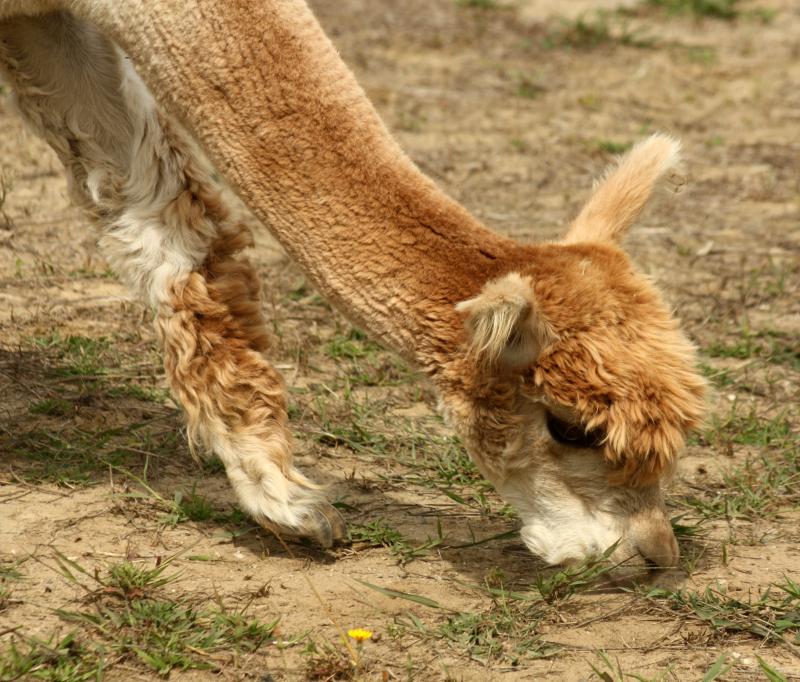 Sonata, also called Sonni. (Photo by Holly S. Edwards)
Sonata, also called Sonni. (Photo by Holly S. Edwards)
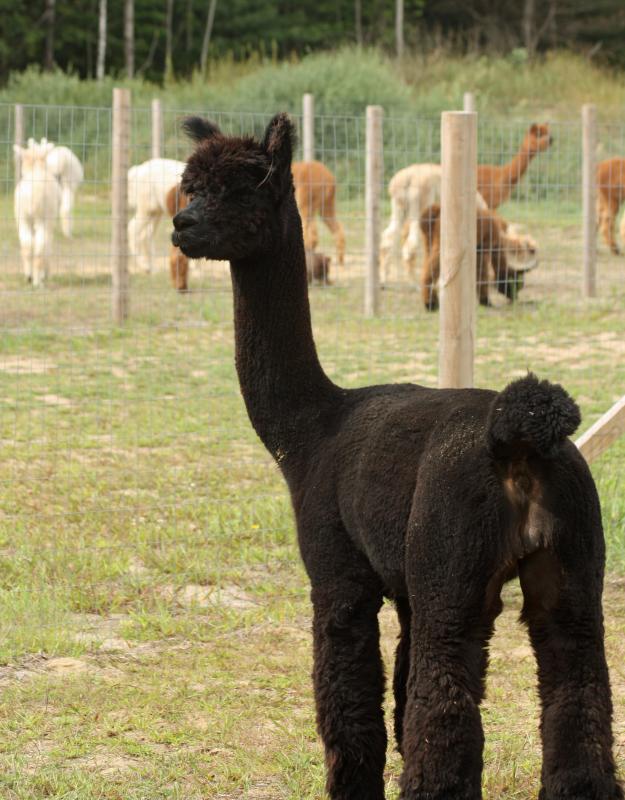 Cooper, a visiting male who has been bred with some of the farm’s females. (Photo by Holly S. Edwards)
Cooper, a visiting male who has been bred with some of the farm’s females. (Photo by Holly S. Edwards)
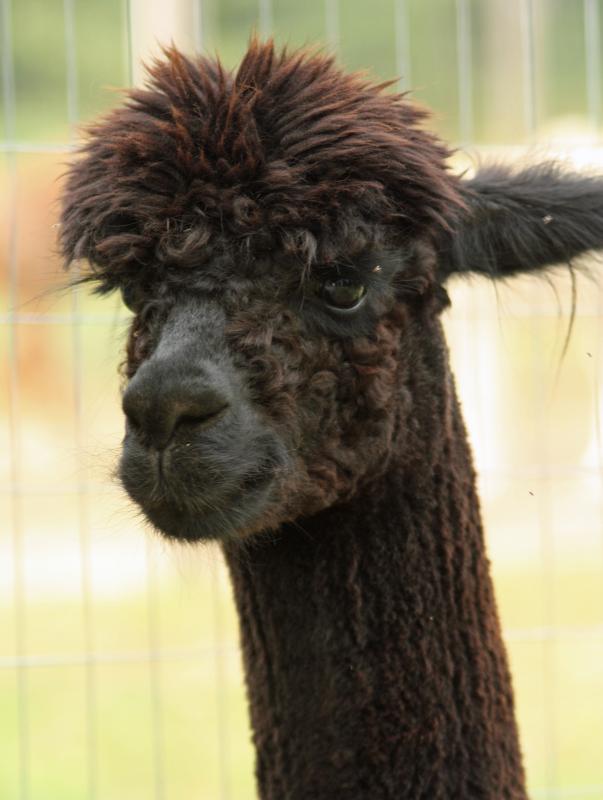 The other males in the herd are jealous of Cooper, the New York male, because he’s been having so many dates with the ladies this season. (Photo by Holly S. Edwards)
The other males in the herd are jealous of Cooper, the New York male, because he’s been having so many dates with the ladies this season. (Photo by Holly S. Edwards)
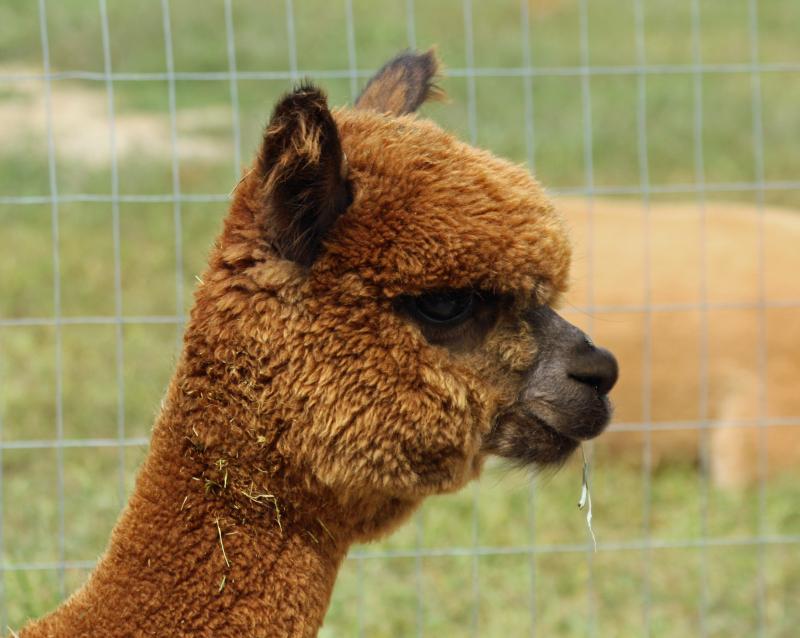 Grantham is a small male alpaca, a little smaller than is usually desired. (Photo by Holly S. Edwards)
Grantham is a small male alpaca, a little smaller than is usually desired. (Photo by Holly S. Edwards)
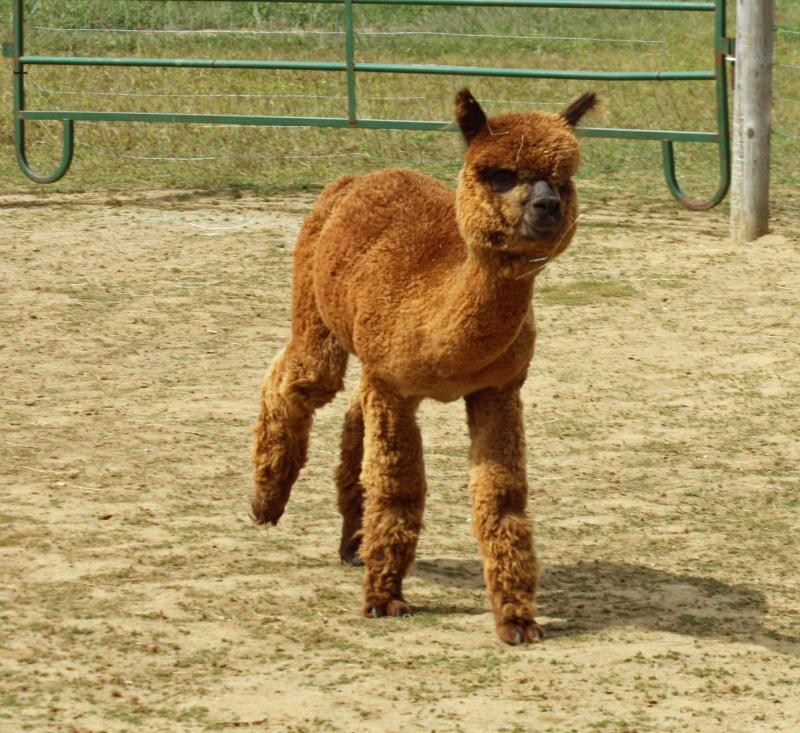 It is hoped that little Grantham will have a growth spurt, and get closer to the size of the other alpacas. (Photo by Holly S. Edwards)
It is hoped that little Grantham will have a growth spurt, and get closer to the size of the other alpacas. (Photo by Holly S. Edwards)
 Northern Solstice’s ‘main man,’ Space Cowboy. (Photo by Holly S. Edwards)
Northern Solstice’s ‘main man,’ Space Cowboy. (Photo by Holly S. Edwards)
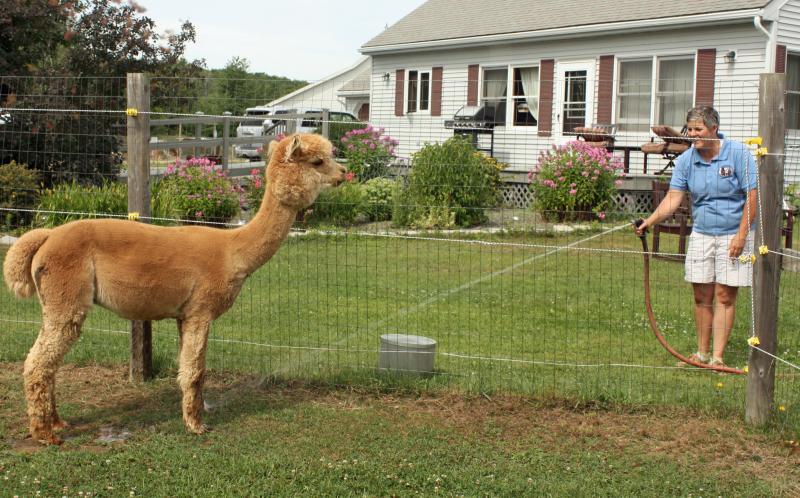 Robin Fowler Pratt gives Space Cowboy a cooling bath on his legs and chest. (Photo by Holly S. Edwards)
Robin Fowler Pratt gives Space Cowboy a cooling bath on his legs and chest. (Photo by Holly S. Edwards)
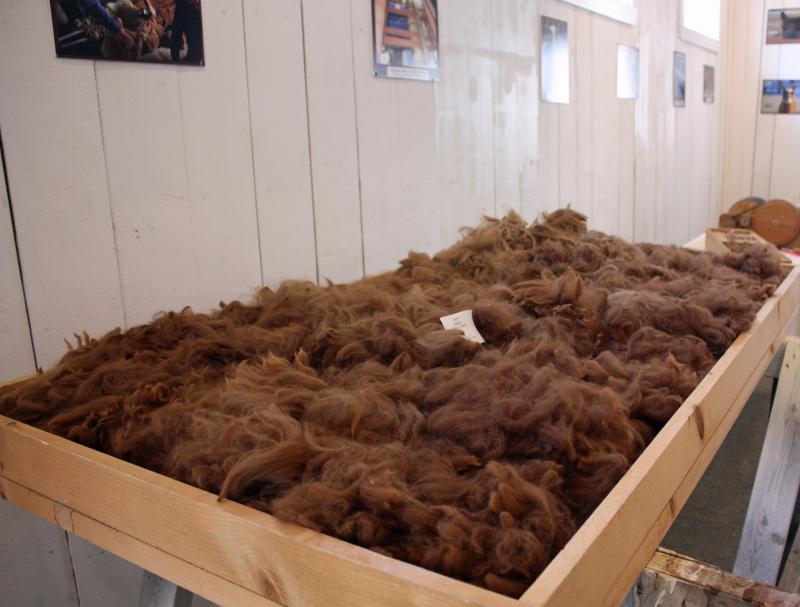 One complete alpaca shearing is seen here in the Northport stores Experience Room, providing the opportunity to see and feel the fiber before it’s been carded and processed further, like into yarn. (Photo by Holly S. Edwards)
One complete alpaca shearing is seen here in the Northport stores Experience Room, providing the opportunity to see and feel the fiber before it’s been carded and processed further, like into yarn. (Photo by Holly S. Edwards)
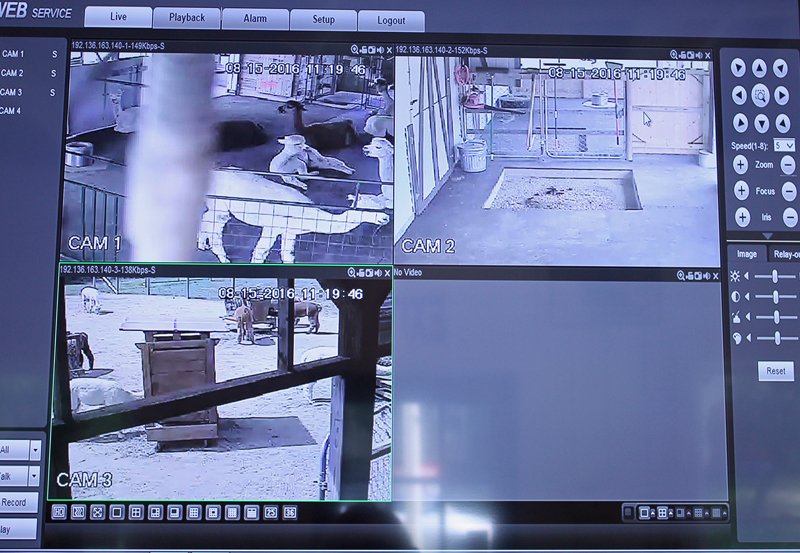 A split-screen video monitor is set up in the Experience Room so visitors can see what the alpacas are doing back at the farm in Unity. (Photo by Holly S. Edwards)
A split-screen video monitor is set up in the Experience Room so visitors can see what the alpacas are doing back at the farm in Unity. (Photo by Holly S. Edwards)
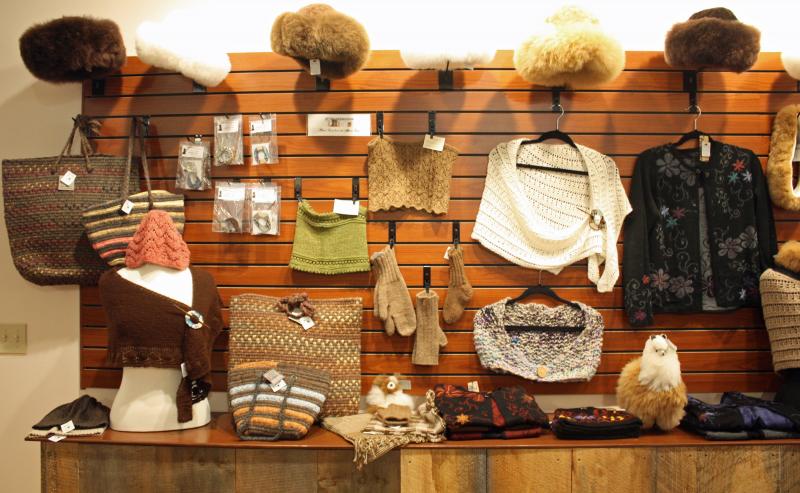 Alpaca wear at the store in Northport. (Photo by Holly S. Edwards)
Alpaca wear at the store in Northport. (Photo by Holly S. Edwards)
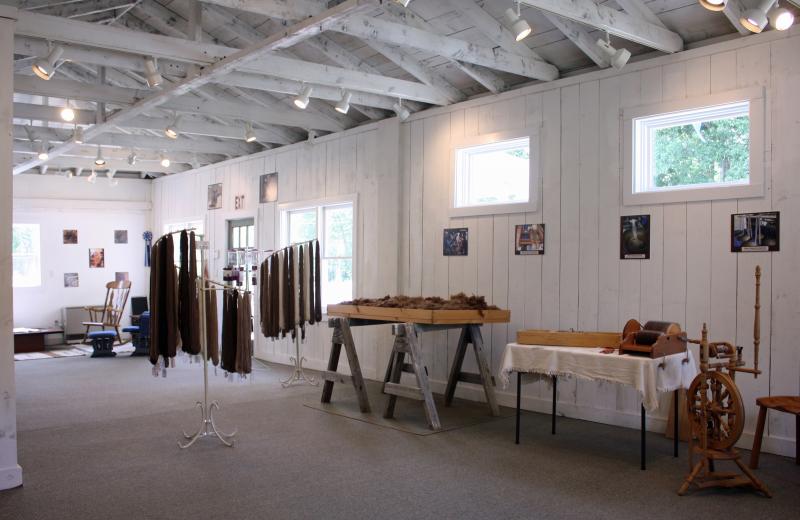 The experience room will offer knitters a place to work with alpaca yarn during classes and workshops, while there will also be opportunities for people to learn how to turn roving into yarn on a spinning wheel. (Photo by Holly S. Edwards)
The experience room will offer knitters a place to work with alpaca yarn during classes and workshops, while there will also be opportunities for people to learn how to turn roving into yarn on a spinning wheel. (Photo by Holly S. Edwards)
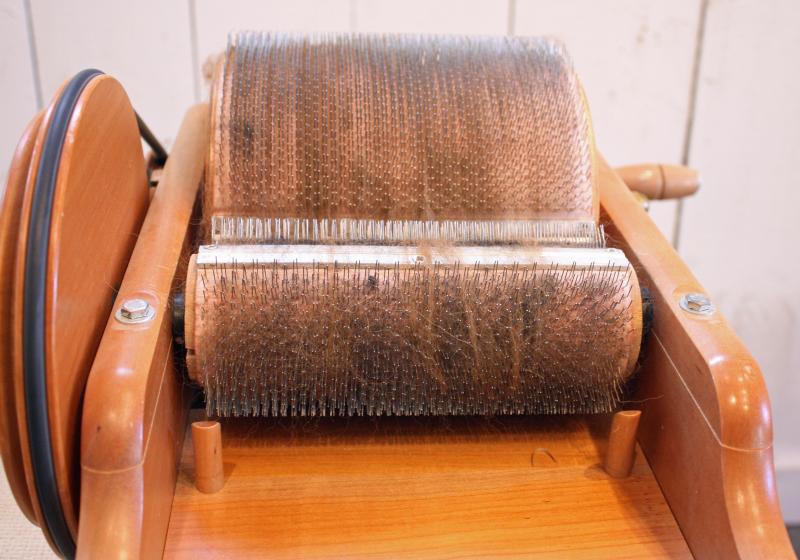 After carding the fleece, it’s combed to straighten the hair into fiber roving for spinning. (Photo by Holly S. Edwards)
After carding the fleece, it’s combed to straighten the hair into fiber roving for spinning. (Photo by Holly S. Edwards)
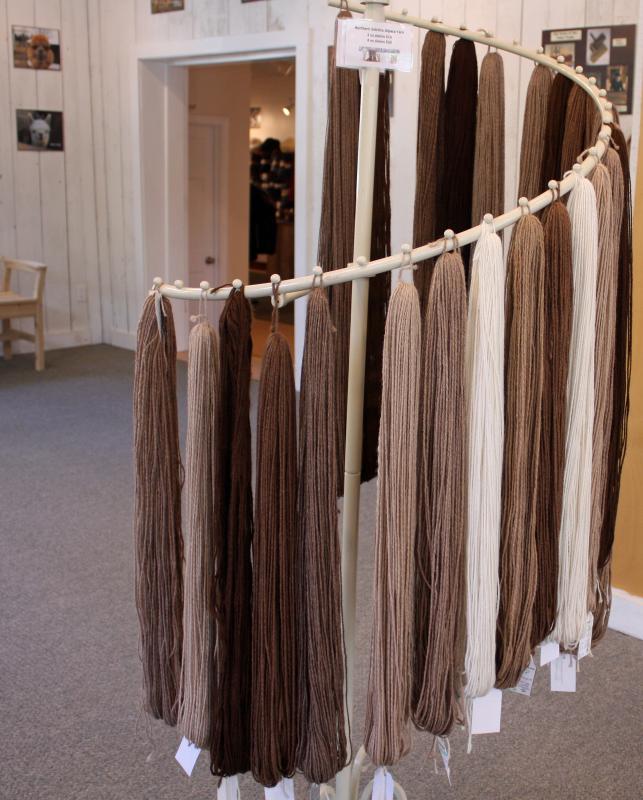 Various colors of yarn, all identified by the alpaca it came from. ‘If you like Effie Mae, who is white, you can buy her yarn,’ said Robin Fowler Pratt. (Photo by Holly S. Edwards)
Various colors of yarn, all identified by the alpaca it came from. ‘If you like Effie Mae, who is white, you can buy her yarn,’ said Robin Fowler Pratt. (Photo by Holly S. Edwards)
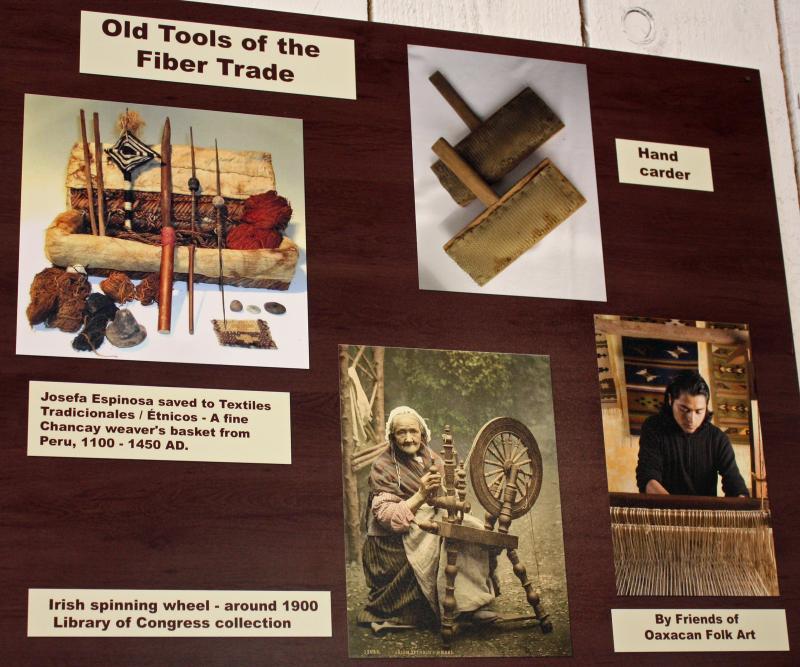 The Experience Room also includes education boards, explaining some of the history of textile tools and examples of ancient tapestries. (Photo by Holly S. Edwards)
The Experience Room also includes education boards, explaining some of the history of textile tools and examples of ancient tapestries. (Photo by Holly S. Edwards)
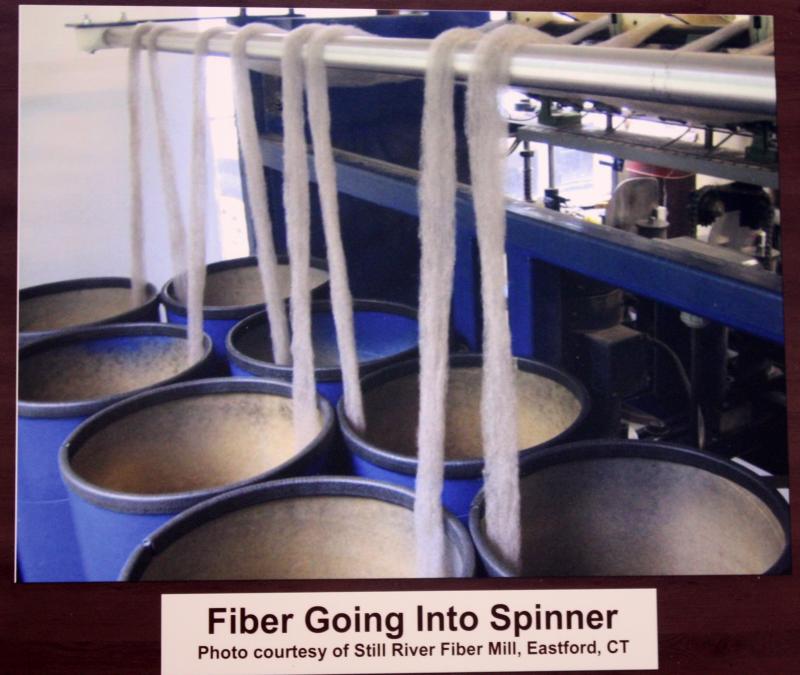 Another photo shows alpaca fiber going into a spinner at Still River Fiber Mlll in Eastford, Conn., a mill that works with small farms and in small batches. (Photo by Holly S. Edwards)
Another photo shows alpaca fiber going into a spinner at Still River Fiber Mlll in Eastford, Conn., a mill that works with small farms and in small batches. (Photo by Holly S. Edwards)
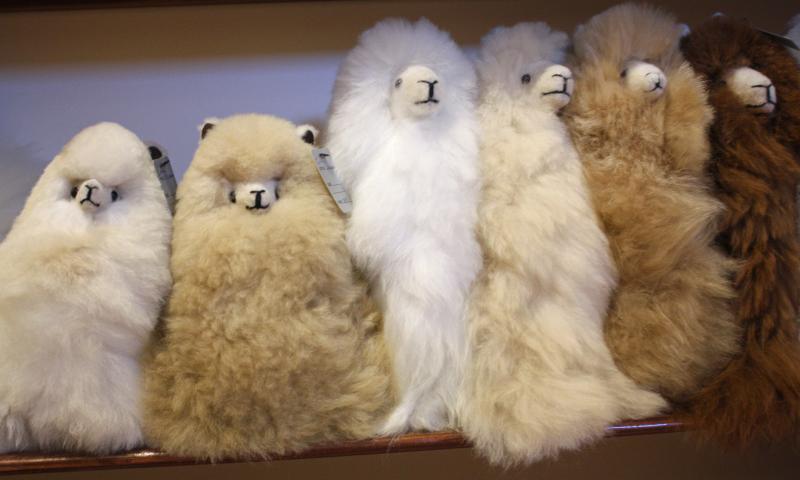 In addition to alpaca wear, there are alpaca toys. (Photo by Holly S. Edwards)
In addition to alpaca wear, there are alpaca toys. (Photo by Holly S. Edwards)
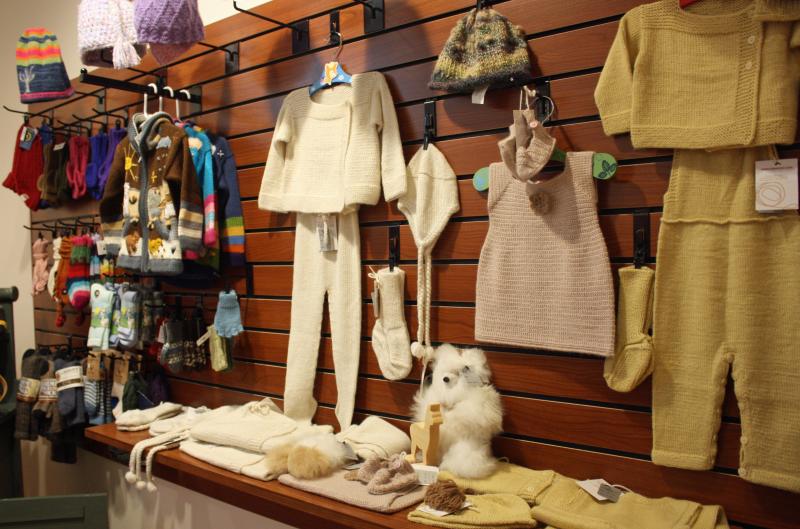 Alpaca wear for children. (Photo by Holly S. Edwards)
Alpaca wear for children. (Photo by Holly S. Edwards)
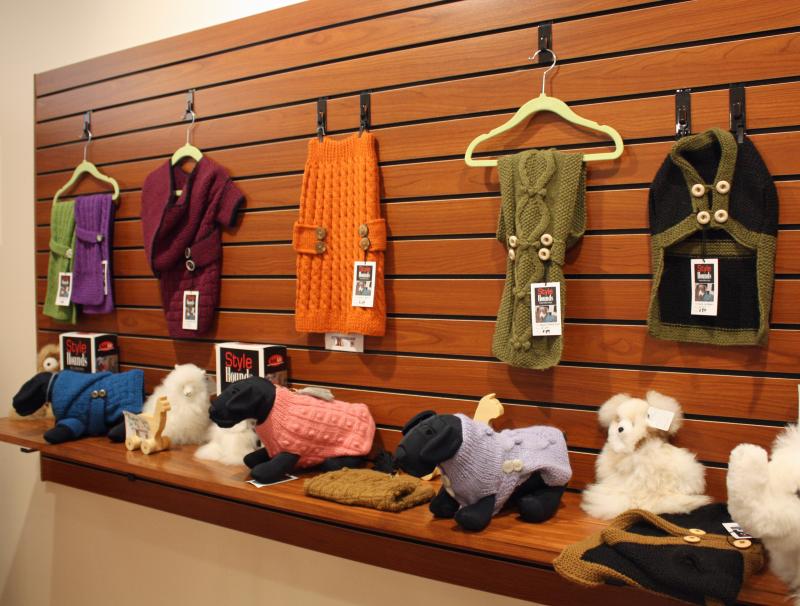 And alpaca wear for your pet, too. (Photo by Holly S. Edwards)
And alpaca wear for your pet, too. (Photo by Holly S. Edwards)
 From left, Robin Fowler Pratt and Corry Pratt of Unity. (Courtesy Robin Fowler Pratt)
From left, Robin Fowler Pratt and Corry Pratt of Unity. (Courtesy Robin Fowler Pratt)
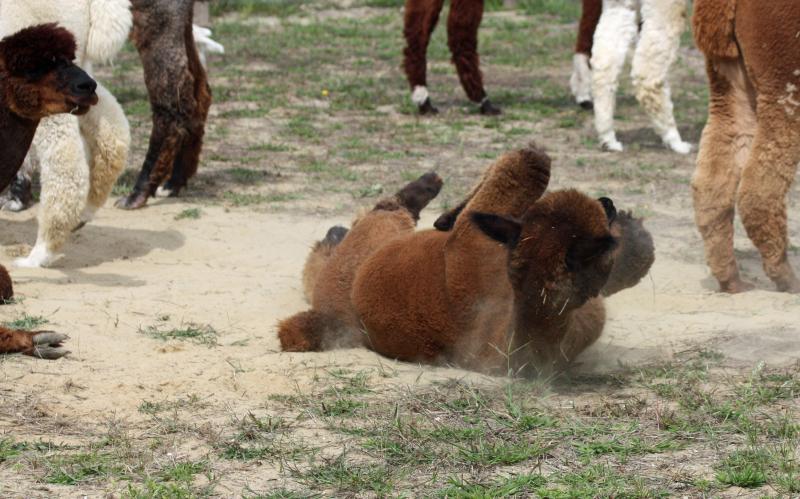 A roll in the dirt is always fun, and like a lot of things with alpacas, once one does it, they all take turns and do it. (Photo by Holly S. Edwards)
A roll in the dirt is always fun, and like a lot of things with alpacas, once one does it, they all take turns and do it. (Photo by Holly S. Edwards)
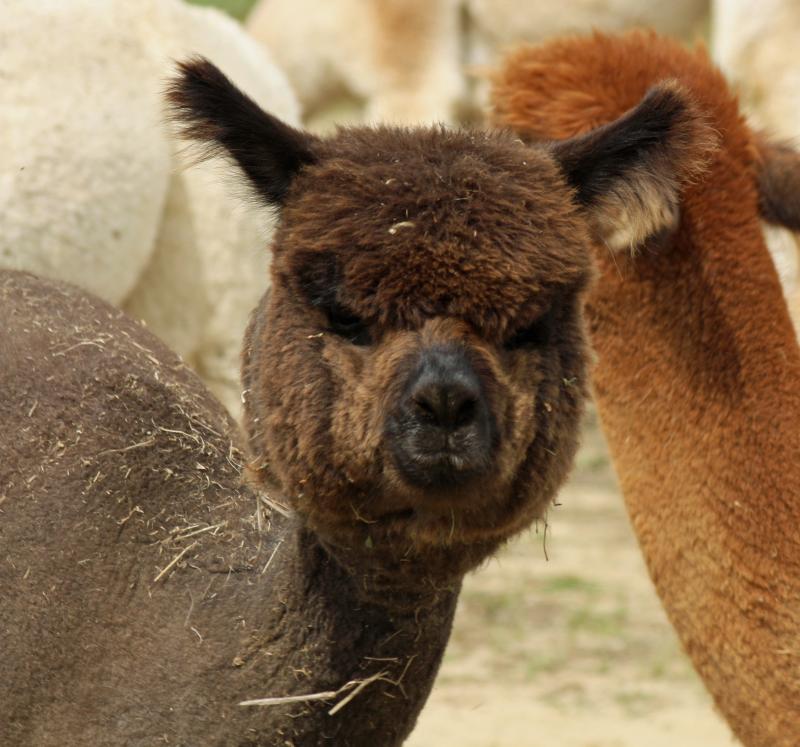 Wynn’s Crystal Mala, also called simply Mala. (Photo by Holly S. Edwards)
Wynn’s Crystal Mala, also called simply Mala. (Photo by Holly S. Edwards)
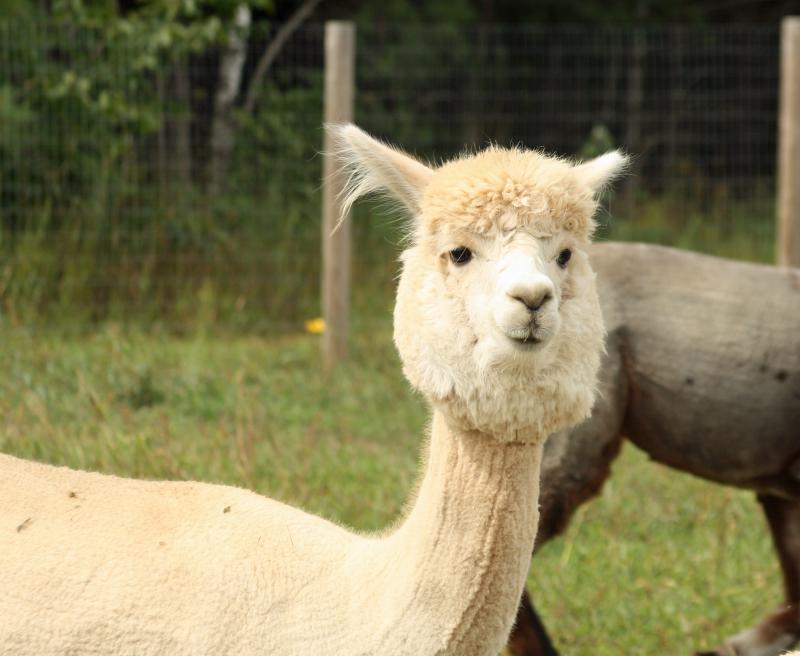 Champagne Sandee, also called Chammy. (Photo by Holly S. Edwards)
Champagne Sandee, also called Chammy. (Photo by Holly S. Edwards)
 Beethoven’s True Justice, also called TJ. (Photo by Holly S. Edwards)
Beethoven’s True Justice, also called TJ. (Photo by Holly S. Edwards)
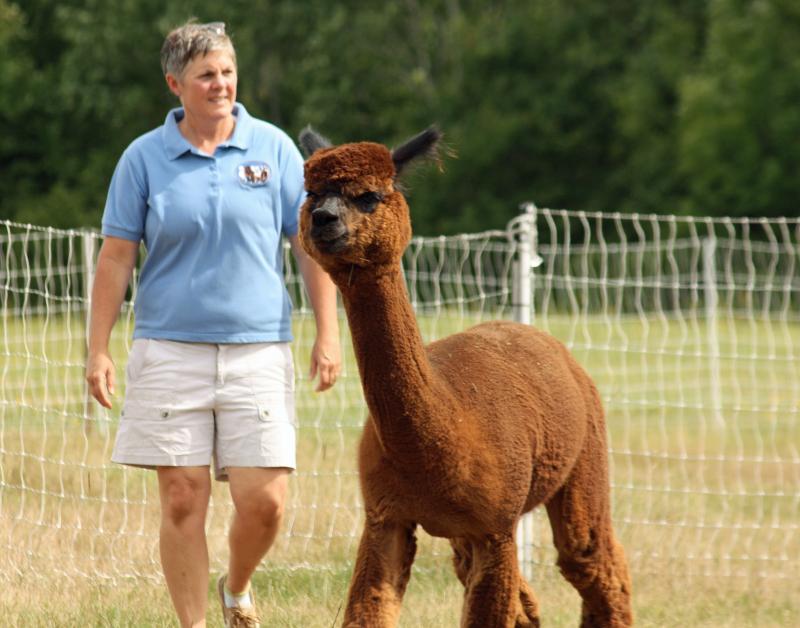 Robin Fowler Pratt and Sonni. (Photo by Holly S. Edwards)
Robin Fowler Pratt and Sonni. (Photo by Holly S. Edwards)
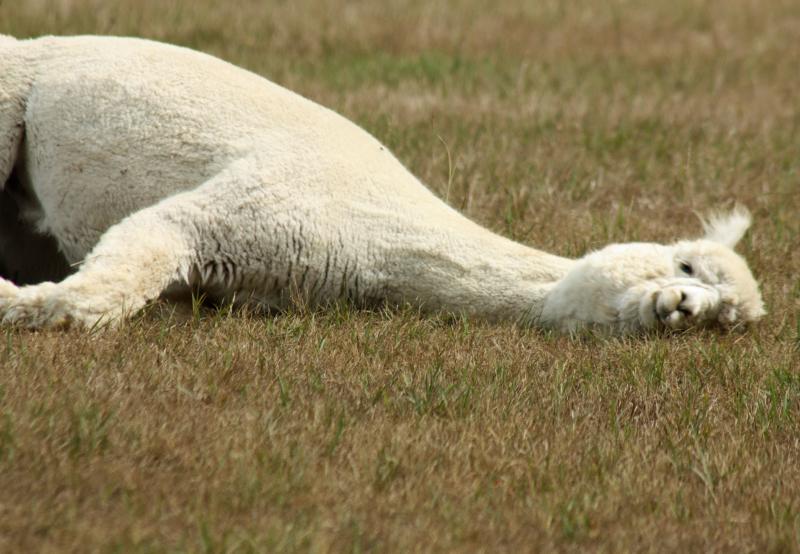 TJ goes down for a roll in the dirt and grass. (Photo by Holly S. Edwards)
TJ goes down for a roll in the dirt and grass. (Photo by Holly S. Edwards)
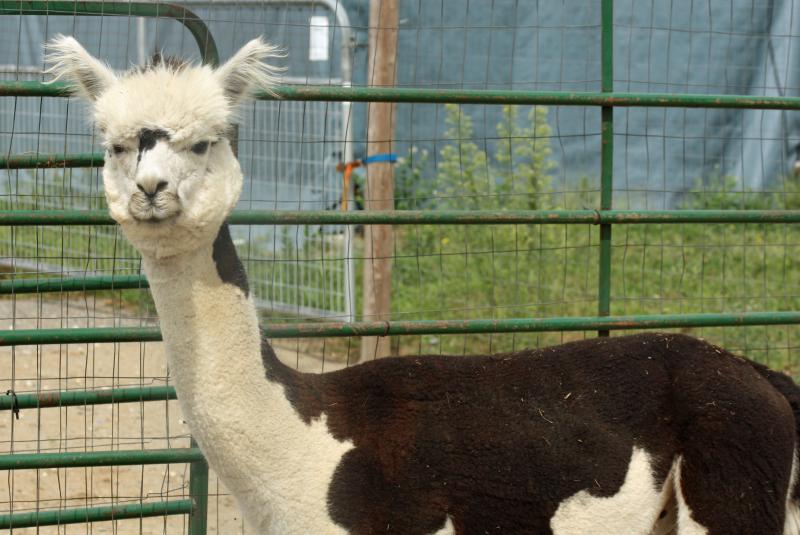 One of the farm’s herdsires, Archimedes. (Photo by Holly S. Edwards)
One of the farm’s herdsires, Archimedes. (Photo by Holly S. Edwards)
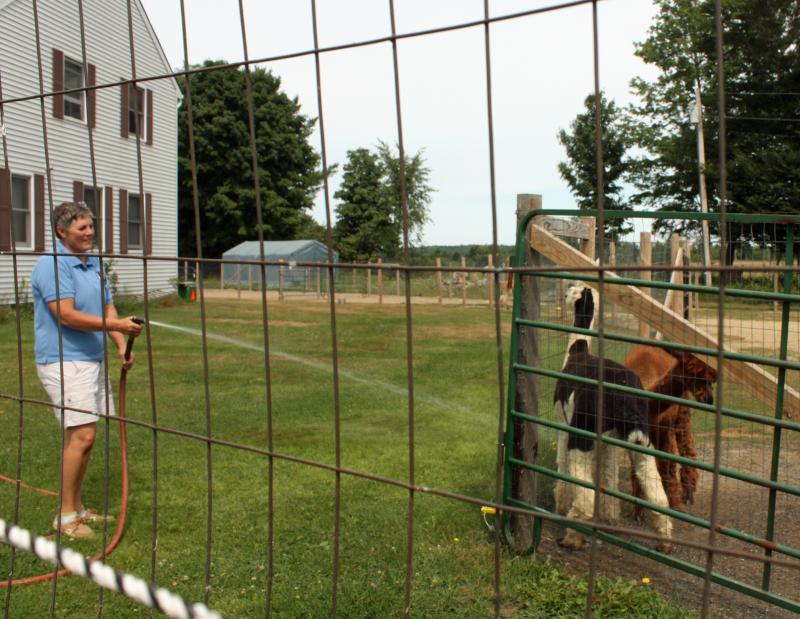 Robin Fowler Pratt hoses down two of the males, Archimedes and Ludicrous. (Photo by Holly S. Edwards)
Robin Fowler Pratt hoses down two of the males, Archimedes and Ludicrous. (Photo by Holly S. Edwards)
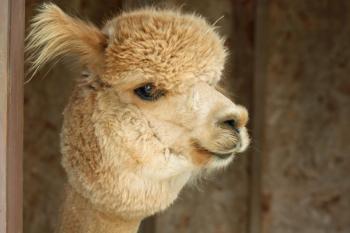 Northern Solstice’s star and most lucrative breeding alpaca is Space Cowboy. He was born in July of 2007 and in 2008 and 2009 won numerous awards. (Photo by Holly S. Edwards)
Northern Solstice’s star and most lucrative breeding alpaca is Space Cowboy. He was born in July of 2007 and in 2008 and 2009 won numerous awards. (Photo by Holly S. Edwards)
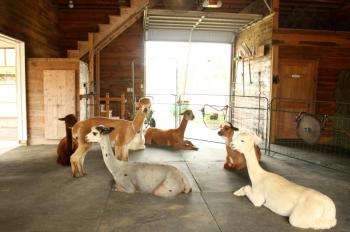 When the temperatures hit 70 F, the fans automatically kick on inside the barn and the girls like to hang out there and ruminate their food. (Photo by Holly S. Edwards)
When the temperatures hit 70 F, the fans automatically kick on inside the barn and the girls like to hang out there and ruminate their food. (Photo by Holly S. Edwards)
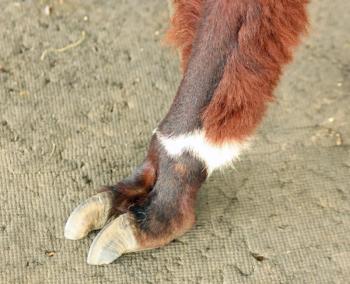 Alpacas don’t have hoofs or claws, they have padded feet and toes. While it is in not in their nature to be defensive, they also are not known to kick and if they do, it does not pack enough of a punch to really ward away a predator. (Photo by Holly S. Edwards)
Alpacas don’t have hoofs or claws, they have padded feet and toes. While it is in not in their nature to be defensive, they also are not known to kick and if they do, it does not pack enough of a punch to really ward away a predator. (Photo by Holly S. Edwards)
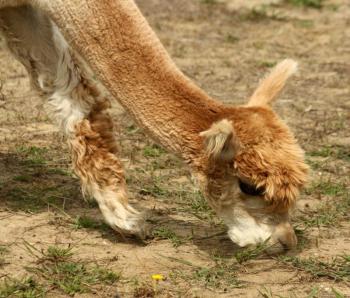 Sonata, also called Sonni. (Photo by Holly S. Edwards)
Sonata, also called Sonni. (Photo by Holly S. Edwards)
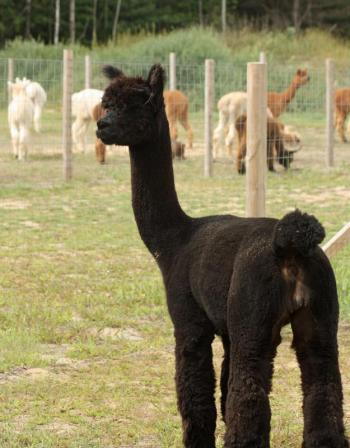 Cooper, a visiting male who has been bred with some of the farm’s females. (Photo by Holly S. Edwards)
Cooper, a visiting male who has been bred with some of the farm’s females. (Photo by Holly S. Edwards)
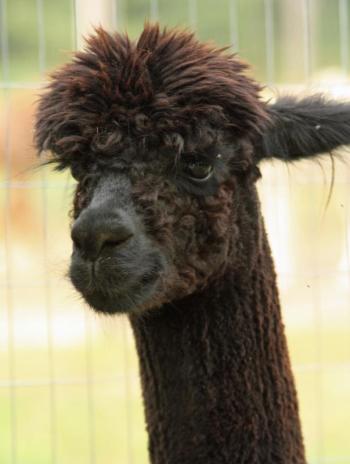 The other males in the herd are jealous of Cooper, the New York male, because he’s been having so many dates with the ladies this season. (Photo by Holly S. Edwards)
The other males in the herd are jealous of Cooper, the New York male, because he’s been having so many dates with the ladies this season. (Photo by Holly S. Edwards)
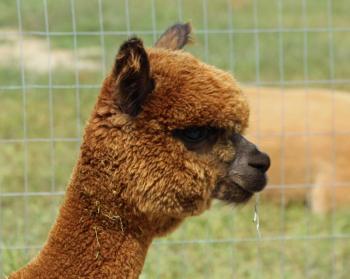 Grantham is a small male alpaca, a little smaller than is usually desired. (Photo by Holly S. Edwards)
Grantham is a small male alpaca, a little smaller than is usually desired. (Photo by Holly S. Edwards)
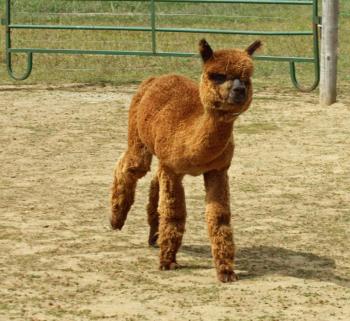 It is hoped that little Grantham will have a growth spurt, and get closer to the size of the other alpacas. (Photo by Holly S. Edwards)
It is hoped that little Grantham will have a growth spurt, and get closer to the size of the other alpacas. (Photo by Holly S. Edwards)
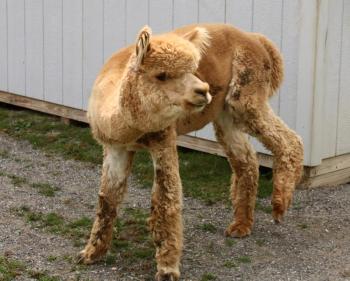 Northern Solstice’s ‘main man,’ Space Cowboy. (Photo by Holly S. Edwards)
Northern Solstice’s ‘main man,’ Space Cowboy. (Photo by Holly S. Edwards)
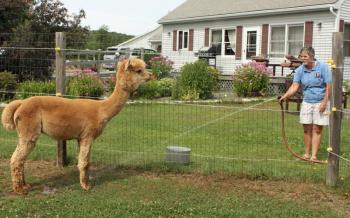 Robin Fowler Pratt gives Space Cowboy a cooling bath on his legs and chest. (Photo by Holly S. Edwards)
Robin Fowler Pratt gives Space Cowboy a cooling bath on his legs and chest. (Photo by Holly S. Edwards)
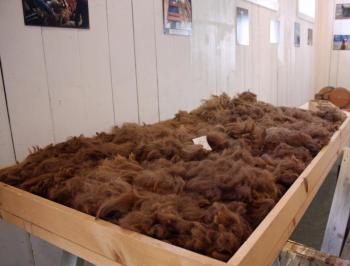 One complete alpaca shearing is seen here in the Northport stores Experience Room, providing the opportunity to see and feel the fiber before it’s been carded and processed further, like into yarn. (Photo by Holly S. Edwards)
One complete alpaca shearing is seen here in the Northport stores Experience Room, providing the opportunity to see and feel the fiber before it’s been carded and processed further, like into yarn. (Photo by Holly S. Edwards)
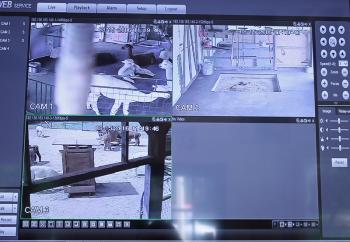 A split-screen video monitor is set up in the Experience Room so visitors can see what the alpacas are doing back at the farm in Unity. (Photo by Holly S. Edwards)
A split-screen video monitor is set up in the Experience Room so visitors can see what the alpacas are doing back at the farm in Unity. (Photo by Holly S. Edwards)
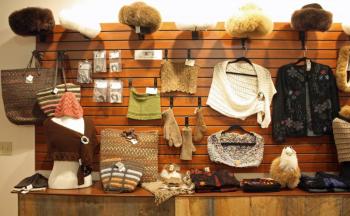 Alpaca wear at the store in Northport. (Photo by Holly S. Edwards)
Alpaca wear at the store in Northport. (Photo by Holly S. Edwards)
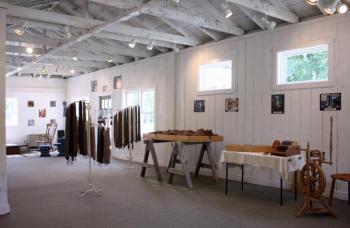 The experience room will offer knitters a place to work with alpaca yarn during classes and workshops, while there will also be opportunities for people to learn how to turn roving into yarn on a spinning wheel. (Photo by Holly S. Edwards)
The experience room will offer knitters a place to work with alpaca yarn during classes and workshops, while there will also be opportunities for people to learn how to turn roving into yarn on a spinning wheel. (Photo by Holly S. Edwards)
 After carding the fleece, it’s combed to straighten the hair into fiber roving for spinning. (Photo by Holly S. Edwards)
After carding the fleece, it’s combed to straighten the hair into fiber roving for spinning. (Photo by Holly S. Edwards)
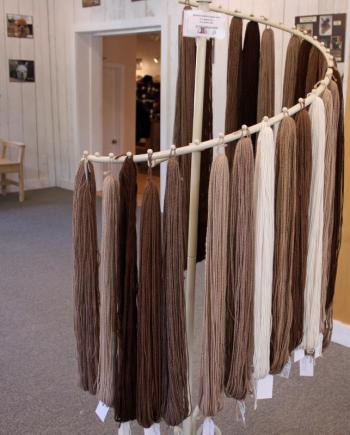 Various colors of yarn, all identified by the alpaca it came from. ‘If you like Effie Mae, who is white, you can buy her yarn,’ said Robin Fowler Pratt. (Photo by Holly S. Edwards)
Various colors of yarn, all identified by the alpaca it came from. ‘If you like Effie Mae, who is white, you can buy her yarn,’ said Robin Fowler Pratt. (Photo by Holly S. Edwards)
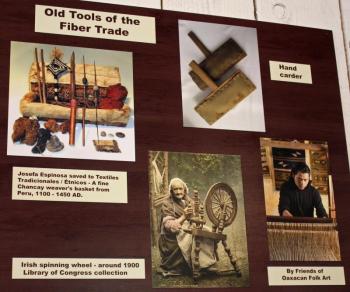 The Experience Room also includes education boards, explaining some of the history of textile tools and examples of ancient tapestries. (Photo by Holly S. Edwards)
The Experience Room also includes education boards, explaining some of the history of textile tools and examples of ancient tapestries. (Photo by Holly S. Edwards)
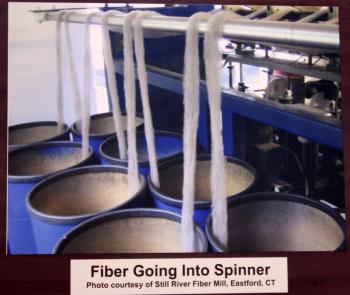 Another photo shows alpaca fiber going into a spinner at Still River Fiber Mlll in Eastford, Conn., a mill that works with small farms and in small batches. (Photo by Holly S. Edwards)
Another photo shows alpaca fiber going into a spinner at Still River Fiber Mlll in Eastford, Conn., a mill that works with small farms and in small batches. (Photo by Holly S. Edwards)
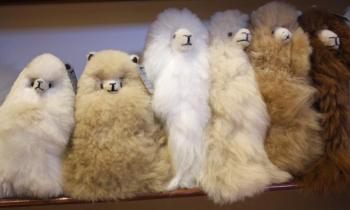 In addition to alpaca wear, there are alpaca toys. (Photo by Holly S. Edwards)
In addition to alpaca wear, there are alpaca toys. (Photo by Holly S. Edwards)
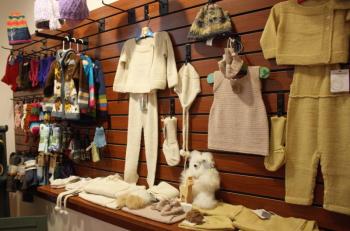 Alpaca wear for children. (Photo by Holly S. Edwards)
Alpaca wear for children. (Photo by Holly S. Edwards)
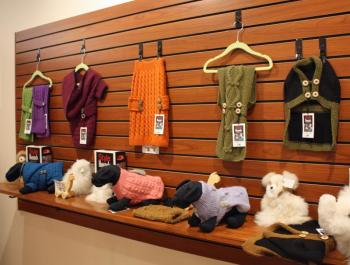 And alpaca wear for your pet, too. (Photo by Holly S. Edwards)
And alpaca wear for your pet, too. (Photo by Holly S. Edwards)
 From left, Robin Fowler Pratt and Corry Pratt of Unity. (Courtesy Robin Fowler Pratt)
From left, Robin Fowler Pratt and Corry Pratt of Unity. (Courtesy Robin Fowler Pratt)
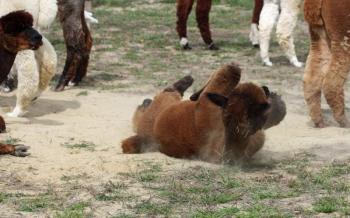 A roll in the dirt is always fun, and like a lot of things with alpacas, once one does it, they all take turns and do it. (Photo by Holly S. Edwards)
A roll in the dirt is always fun, and like a lot of things with alpacas, once one does it, they all take turns and do it. (Photo by Holly S. Edwards)
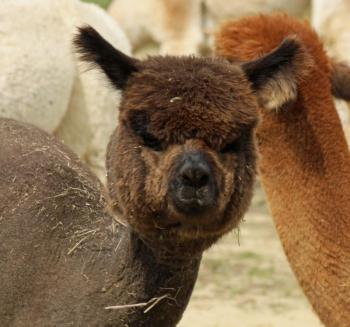 Wynn’s Crystal Mala, also called simply Mala. (Photo by Holly S. Edwards)
Wynn’s Crystal Mala, also called simply Mala. (Photo by Holly S. Edwards)
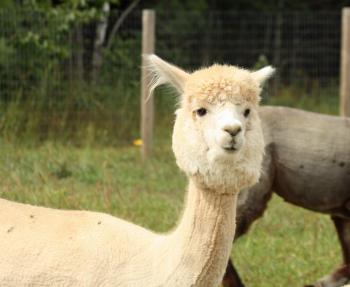 Champagne Sandee, also called Chammy. (Photo by Holly S. Edwards)
Champagne Sandee, also called Chammy. (Photo by Holly S. Edwards)
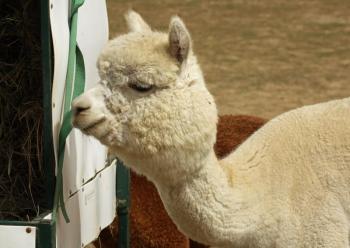 Beethoven’s True Justice, also called TJ. (Photo by Holly S. Edwards)
Beethoven’s True Justice, also called TJ. (Photo by Holly S. Edwards)
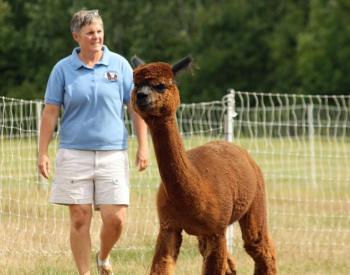 Robin Fowler Pratt and Sonni. (Photo by Holly S. Edwards)
Robin Fowler Pratt and Sonni. (Photo by Holly S. Edwards)
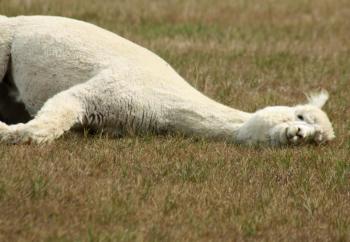 TJ goes down for a roll in the dirt and grass. (Photo by Holly S. Edwards)
TJ goes down for a roll in the dirt and grass. (Photo by Holly S. Edwards)
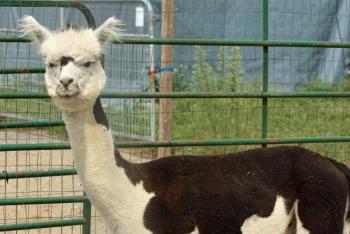 One of the farm’s herdsires, Archimedes. (Photo by Holly S. Edwards)
One of the farm’s herdsires, Archimedes. (Photo by Holly S. Edwards)
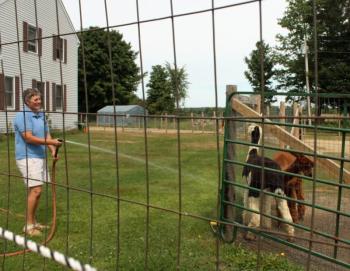 Robin Fowler Pratt hoses down two of the males, Archimedes and Ludicrous. (Photo by Holly S. Edwards)
Robin Fowler Pratt hoses down two of the males, Archimedes and Ludicrous. (Photo by Holly S. Edwards)
UNITY/NORTHPORT — Ten years ago, Robin Fowler Pratt and Corry Pratt started Northern Solstice Alpaca Farm in Unity. Back then, they had dreams of creating a wonderful place to raise and care for alpacas, a business that would not only be self-sustaining, but would serve to educate the public about the animals that they both love and care very much about. Today, their tidy farm in western Waldo County remains focused on hands-on care and comfort of their herd, and they've opened a new facility in Northport to further expand awareness of alpaca fiber and the animals that wear it, and share it.
Alpacas are cousins to the llama, intelligent animals native to the Andean Mountain range of South America, particularly Peru, Bolivia and Chile.
"They are defenseless animals, without an ounce of aggression in their bodies,” said Robin Fowler Pratt. “When confronted or attacked, they are more likely to lay down and curl up into a ball than anything else, and that makes them in need of special attention and protection.”
In addition to not being aggressive, or even very defensive, alpacas do not have horns, hooves, claws or incisors to defend themselves. But what they lack in defenses, they make up for in attributes that make them attractive to own, not to mention fun to look at.
They are alert, intelligent, curious and predictable. They are social animals that seek companionship, and they communicate most commonly by softly humming, unless alarmed. Then, they emit a sound akin to a high-pitched whinny to get the attention of the others in the herd.
Alpacas were first commercially important into the U.S. in 1984. And as of 2014, the Alpaca Owners Association, Inc., is the world's largest alpaca association, with nearly 10,000 members and more than 230,000 alpacas in its registry database.
The Pratts, like many other area alpaca owners, use the services of the New England Alpaca Fiber Pool, which provides a central fiber collection, pickup service and processing service.
"Wihout NEAFP, we would not be doing alpacas because we would be spending a lot of time and even more money on shipping large enough quantities of fiber for a mill to take in and produce," said Fowler Pratt.
But not all of their fiber is processed through NEAFP. Some of it, they do themselves, including the sorting and grading, picking and carding, roving and spinning.
Northern Solstice alpacas are not like a lot of other alpacas you might visit. They are more friendly and tolerant of interacting with people, and having people move around inside their pen with them. That's because the Pratt's treat them more like family pets than livestock. They routinely bring visitors inside the pens, making sure the alpacas know that most visits are to say hello, not to be prodded or painfully poked and pricked.
"If you have a cat or dog and you treat it like a human, they are probably going to be friendly. And clearly we do that with our alpacas," said Fowler Pratt. "You need to engage with them for them to engage with you."
Pratt said that many invest in alpacas because they are clean and easy to keep, making them not very expensive. All of that stems from where they originated and how they lived outside the U.S.
The are clean, because they don't have defenses and so don't want to attract predators. That means, female and less dominant alpacas favor a communal area for urinating and defecating. Dominant alpacas, especially those in captivity with other males nearby, will defecate around the edges of their pen to mark their territory. This is a trait that Northern Solstice's dominant, most expensive and most well-known male alpaca, Space Cowboy, exhibits. He is also kept in his own pen, with an inside electric fence, because he would want to do battle with the other males and show them who is boss, if he could.
But don't feel bad for Space Cowboy, he gets plenty of visits from female alpacas brought for a "date" and he has his own fan club of people, and usually gets a visitor at least once a day. Space Cowboy and the other males are available for stud service, and Northern Solstice sells alpacas and offers a $50 "rental" or adoption program as well.
Alpacas are not very expensive to keep because for one thing, they are efficient eaters. As a ruminator, like cows, sheep and goats, alpacas chew their cud. But unlike those mammals, an alpaca, with its three-compartment stomach, chews its cud much longer, 20 or 30 minutes, and so gets more nutritional value out of a smaller amount of food. And because of that, alpacas also stop eating when they are full.
"They are getting every single drop of nourishment out of it. That's why they only need to eat two pounds a day and that's why they are so cheap to keep. Where as most animals eat tons, they don't really digest it and that's why their poop looks like hay. These guys have a round pellet that is fully digested that can go right onto your vegetable garden. It's already been processed, cooked and it's ready to go."
Alpaca manure is PH balanced, and an excellent natural, slow-release low-odor fertilizer, said Fowler Pratt. It is easy to collect and compost, due to its preferred collective depositing by the animals, all of which helps control the spread of parasites.
"They are extremely efficient, and that's from living in the mountains where there is nothing to eat. Their bodies have learned and adapted," she said.
But it's not all to the alpaca's credit. The Pratts provide a good environment that the animals enjoy, and its a space that is easy for them to keep clean. Each day, a leaf blower is used to remove dirt and debris that has gotten stuck between toes and tracked in. And each day, sometimes more, someone grabs a broom or a hose and cleans up poop or pee that missed the communal spot, cause by somebody not being able to hold it until the person at the front of the line finished.
"They are like kids, when one gets up to go, they all feel the nee to go and get in line," said Fowler Pratt. And it's true, it actually happens that way!
Their soft, padded feet do not damage topsoil, increasing long-term soil fertility and decreasing erosion and weed invasion. They also prefer tender grasses, which they do not pull up by the roots. They are able to cut the grass with their bottom teeth and upper palate, encouraging the plants' natural growth without the addition of insecticides, herbicides or fertilizers.
All of those things go into making some pretty awesome fiber.
Alpaca fiber is sheared once a year and after processing, is spun into yarn for mittens, socks, scarves, sweaters, hats and myriad other accouterments for people, and pets too.
All of the fiber from an alpaca can be used, even the fiber from the lower legs, belly and neck. It is also biodegradable, and Fowler Pratt said some of the lesser grade fiber is made into boot inserts and natural weed mats placed around trees.
Alpaca fleece does not contain lanolin, like wool, and so does not require chemicals during processing into fiber. If dying is desired, only 20 percent of a normal amount of dye is required.
Northern Solstice fiber is sold in natural hues of white, cream, sand, brown, gray and black. One of their alpacas, Truffles, is a "new modern gray" that almost looks purple in the right light.
"Her fiber now, even though it is not very long yet, is already pre-bought. Someone already owns it. Gray fiber is unusual, so people buy her yarn well ahead of time and hers is already sold, at $32 per skein," said Fowler Pratt.
When Truffles is sheared, her processed fleece will yield 20-30 skeins of yarn.
"Her care is $300 a year and it's a nice way to pay in advance for her care, sort of like a CSA, where you buy your veggies before they are grown," she said. "We bought her exclusively for her unusual color."
At the farm in Unity, which is nestled between land owned by MOFGA on either side, there is a small store where they sell alpaca wear. But this year, in a move to further increase the sustainability of the business and the alpacas and bring them to a larger audience, Northern Solstice has opened a new Maine Alpaca Experience store in Northport.
Located in the former Saturday Cove Art Gallery space, which has been thoroughly renovated, top to bottom, the new space has a larger and more diverse selection of alpaca wear and alpaca fiber products, but also includes the Experience Room. It's a large, natural light-filled area set with a coffee table and rocking chairs for knitters at one end and a mini-museum and hands-on alpaca education area at the other. In the middle of the room, you can check out the big split-screen video monitor and watch what the alpacas are doing back in Unity, or visit Clem of Younity Winery and taste some locally produced wines.
Back at the other end of the building, Fowler Pratt's sister, photographer Pam Wells, has a display of her Oakleafs Studio nature and scenic photos on the walls, available for purchase.
Eventually, Fowler Pratt said the property behind the building will be fenced in to allow some of the farm's alpacas to make day trips from Unity and visit with people who stop by, or become one of the sights renters of the upstairs seasonal apartment will be able to wake up to.
"We talked ourselves out of getting out of this many times. Then we would say, OK, lets just say we sold everything. The house, everything... where would we live and what would we want to do? Well, we would want to live in the country, be in a quiet area but not too far from a city. Probably have some animals. And then, we were like, we are right back to alpacas! What are we doing thinking about selling? We just have to find a way to make money with it. And hopefully that is what Northport will be for us," said Fowler Pratt.
Related links:
• Northern Solstice Alpaca Farm website
• Northern Solstice Alpaca Farm on Facebook
Event Date
Address
608 Atlantic Highway
Northport, ME 04849
United States

